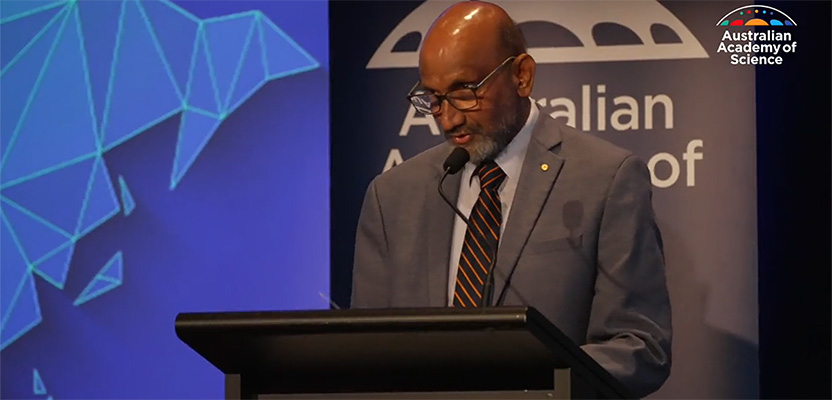Are Australia’s international scientific collaborations at risk with the Defence Trade Controls Amendment Bill 2023?
- 3 mins read


Australia’s national security and research community has gathered in Canberra tonight on the eve of a National Symposium to discuss how Australia can address national security concerns while enabling the benefits that open scientific collaboration offers Australia and the globe.
The symposium, tomorrow Tuesday 14 November, comes as new legislation is set to be introduced that will see Australia expand its backyard to include the US and the UK, but raise the fence for any other country when it comes to international research collaborations in areas on the Defence and Strategic Goods List.
The draft legislation is designed to strengthen Australia’s defence export control framework, and creates three new criminal offences in the Defence Trade Controls Act 2012.
In a dinner hosted by the Australian Academy of Science on Monday night, His Excellency the Hon Dr Kevin Rudd AC, Australian Ambassador to the United States of America, addressed the issue from Washington DC.
He told the dinner audience that he can conceive the possibility of a range of academic institutions, across some research domains, being proscribed from collaborating with their Chinese counterparts.
“While collaboration on medical research and the life sciences would likely continue,” he said, “if you are at the hard edge of the sciences which are nearest and closest to the revolutionary intersections involving artificial intelligence ... it’s going to be harder and harder, as both sides seek to de-risk their engagements, for what we would describe as normal scientific collaboration to occur.”
Her Excellency Ms Caroline Kennedy, Ambassador of the United States of America to Australia, who spoke at the dinner, said, “Striking the right balance between collaborative research and national security is one of the most important and difficult goals of democratic societies like the US and Australia … we need to be clear-eyed about the risks of openness and the intent of our competitors.”
The Australian Academy of Science President, Professor Chennupati Jagadish AC, said that while the Academy welcomes a more seamless collaborative environment with the US and UK as part of the AUKUS arrangements, it is concerned about the negative impacts this will have on research collaborations with all other countries, which serve our national interest.
“Efforts must be made by government to facilitate critical scientific and technological collaboration with countries other than the US and UK,” Professor Jagadish said.
The Academy’s Chief Executive, Anna-Maria Arabia, said the Federal Government must consider the resource implications of implementing this legislation.
“This includes resources to establish secure research facilities, to educate and train the research workforce to make it more security-aware—especially as non-compliance, accidental or otherwise, will be a criminal offence—and to create opportunities to widen low-risk international collaborations, such as through association with Horizon Europe.”
Media note:
A highlights package video of the evening is available here.
A Dropbox of tonight’s speeches and the panel discussion is available here. Please contact the Academy for clean grabs without the Academy watermarked logo.
Livestream registrations are open for the Academy’s national symposium tomorrow, Tuesday, 14 November. To register please email: media@science.org.au
The Australian Academy of Science provides independent, authoritative and influential scientific advice, promotes international scientific engagement, builds public awareness and understanding of science, and champions, celebrates and supports excellence in Australian science.







